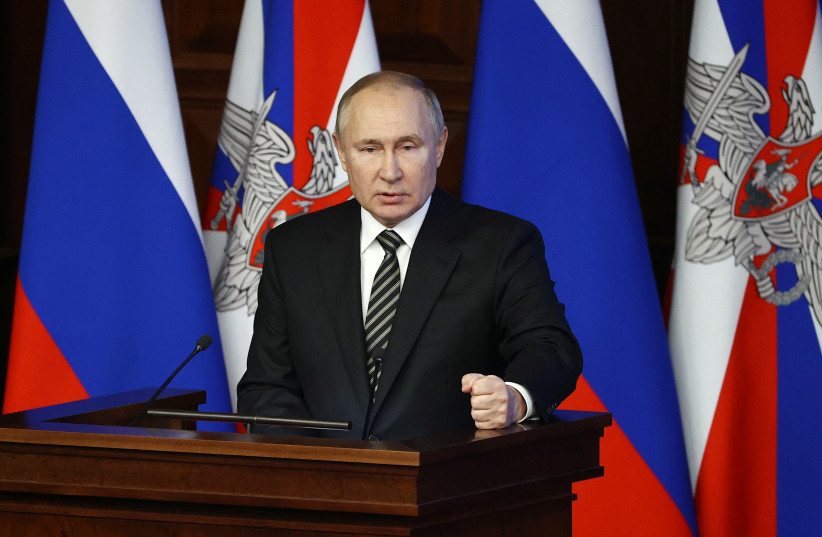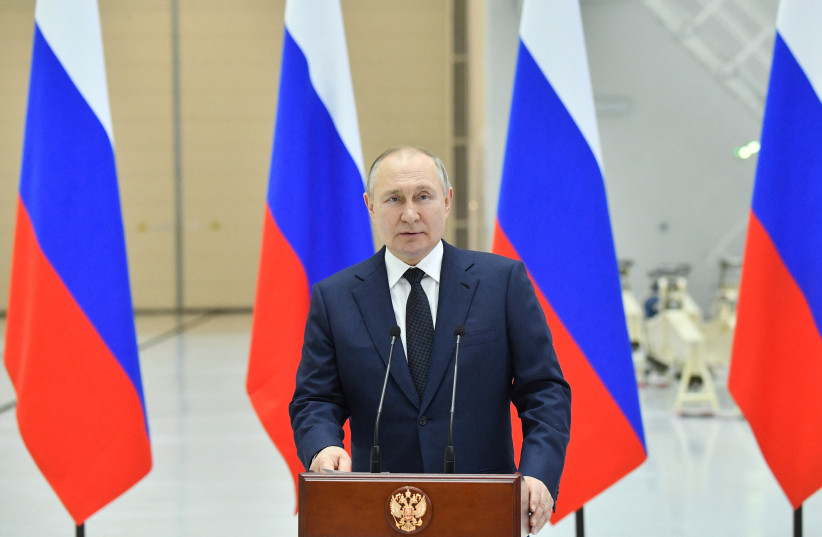The line between a real-world villain and a comic-book villain can become disturbingly blurred.
This notion reverberates through Accidental Czar; The Life and Lies of Vladimir Putin, a stunningly original graphic biography that combines the irreverence of cartooning with an authoritative grasp of Russian history – to provide a glimpse into the skull of Russia’s sitting ruler.
Accidental Czar packs its punch by sticking to the facts. Frame by frame, we learn about the movies Putin saw as a child, the brawls he got into, the jobs he held. We watch him develop a monarch’s fear of public uprisings and an affinity for right-wing politicians, including America’s Donald Trump.
“If we’re going to deal effectively with Putin, we… need to understand his motivations, along with the heavy burden of history that shape them. We need to see the parts of a man who is in many ways ordinary, even as the problems he has created are often extraordinary,” the author of the text, Andrew S. Weiss, writes in the introduction.
“If we’re going to deal effectively with Putin, we… need to understand his motivations, along with the heavy burden of history that shape them. We need to see the parts of a man who is in many ways ordinary, even as the problems he has created are often extraordinary,”
Andrew S. Weiss
Weiss, a Washington policy insider who has been grappling with Putin and Putinism for nearly a quarter century, tells us that Putin is a pragmatist – except when his temper gets in the way.

The life of Vladimir Putin, from childhood to invading Ukraine
We meet young Vladimir Vladimirovich in a Leningrad communal flat, where he entertains himself by grabbing sticks and chasing rats up and down a crumbling staircase. The narrative cuts off at the start of Putin’s most recent horrific act – Russia’s full-scale invasion of Ukraine. This gives Accidental Czar a dramatic wholeness: something awful has gone down on February 24, 2022. The rest is a story for another day.
Since childhood memories matter, I decided to explore the rat-chasing parable beyond this book’s graphic frames. Consulting the bibliography (yes, there is a bibliography), I located an old interview in which Putin tells this story:
“There, on that staircase, I understood the true meaning of the expression ‘pushed into a corner’… Once, I saw a massive rat, and I began the chase, until I drove it into a corner. It had no place to run. Then it turned around and lunged at me. This was unexpected and very scary. At this point, it was the rat chasing me. It skipped over the steps, jumped over flights of stairs. Of course, I was still faster, and I slammed the door before its nose.”
It’s Putin, not the rat, who’s pushed into a corner. What happens next? Not even a cartoonist knows.
That said, an opportunity to draw a rat lunging like a Malinois K-9 should give a cartoonist an excellent reason to get out of bed in the morning. Brian “Box” Brown executes this scene with full understanding that in a story of aggression and revenge, a rat is never just a rat.
Young Volodya is an atrocious student, but thanks to the Soviet film industry, he finds worthy role models. He becomes obsessed with Soviet spies who donned spiffy uniforms of the Third Reich and operated undercover. Weiss cites The Sword and the Shield, a series of feature films, and 17 Moments of Spring, a television drama, as early influences on Putin.
Dead dialogue and wooden acting in these offerings were so extreme that one of them, 17 Moments, spawned a series of jokes that still amuse sundry intellectuals. Putin, by contrast, got so stoked on this dreck that in 1966 he knocked on the gates of the Big House, the KGB building in Leningrad, to volunteer.
Imagine the visuals: Soviet movie posters, the ominous Constructivist Big House, a young man at its gate.
Putin's life: From KGB to political power
WE FAST-FORWARD. Putin gets his act together, earns a university degree, gets into an elite KGB school. Then, on impulse, he beats the crap out of some guy on the Leningrad subway.
Since the KGB discouraged its employees from committing unsanctioned assaults on citizens, instead of being posted in Berlin, in 1985, Putin winds up in a paper pushing job in a backwater outpost – Dresden.
Putin’s German period inspires a moody frame on the book’s title page. A solitary figure with a telltale bald spot, walking alone in no man’s land, by a guard tower, next to the Berlin wall, not far from the Brandenburg Gate.
Now fast-forward to 1999. President Yeltsin’s ticker is giving out, and his departure would imperil the fortunes amassed by his family and vassals. The Yeltsinites need to find someone who would let them (1) stay out of prison and (2) keep their loot. Might Putin, by then chairman of the FSB, the secret police, be their man? A deal is done.
Weiss is more than a behind-the-curtain storyteller here. He gets cameos. We see his bespectacled persona as an aide in the Oval Office when the Russians secretly inform Bill Clinton about Putin’s anointment.

This makes for fun frames:
CLINTON: “Oh no! That guy??”
WEISS: “Wow.”
CLINTON (covering his face): “Jesus.”
Having seen the Eastern Bloc and the USSR come apart, Putin knows what happens when you and your troops are not welcome. Yugoslavia’s Bulldozer Revolution, Georgia’s Rose Revolution, Kyrgyzstan’s Tulip Revolution, Kuwait’s Blue Revolution, and Ukraine’s Orange Revolution and Euromaidan have convinced him that popular action everywhere is instigated or exploited by the West.
“Putin mistakenly thinks that there is a ‘color revolution’ button on the desk of the US president,” Weiss writes. “Russian leaders simply can’t accept that brave people sometimes shape history all on their own.”
In another cameo, in the private office at the White House, Weiss observes Clinton’s farewell call in which the outgoing US president advises his Russian counterpart to ease up on bullying Georgia.
Recalls Weiss: “Putin basically exploded. The raw emotion and lack of self-control from a head of state were things I hadn’t seen before. It was scary to see Putin acting like a total hothead. Putin got more and more heated, especially compared to the smooth-as-silk Clinton. Before too long, the impulsive streak that hurt his KGB career would begin to stir trouble on a much vaster scale.”
The boy who taunted rats and assaulted a bloke on the Leningrad metro would go on to build a cult of aggressive masculinity, imprison, torture, poison and assassinate his rivals, create a kleptocratic regime, impoverish his country, strive to subvert democracy worldwide. Drawing inspiration from his peers – Hitler and Stalin – he would also breach the borders of a neighboring state, sanction marauding, torture and on-the-spot executions by his soldiers, and send rockets into maternity hospitals and bomb shelters filled with children.
All of this has earned him a nickname worthy of a comic book villain: Putler.
The writer’s novel The Dissident is forthcoming from Farrar, Straus and Giroux in June.
Accidental Czar: The Life and Lies of Vladimir Putin
By Andrew S. Weiss and Brian “Box” Brown
First Second
251 pages; $28.99
